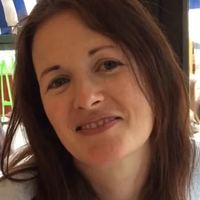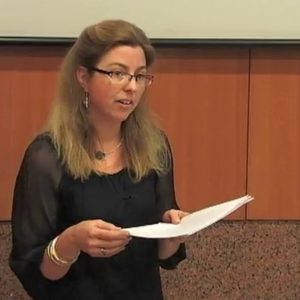Cara Syria Programme: Mentoring support for Syrian academics in exile

Since 1933, the Council for At-Risk Academics (Cara) has been dedicated to supporting scholars forced to flee their homeland in order to escape conflict, arrest or persecution. With academic freedom as the guiding principle underpinning their work, Cara has helped academics and their families find refuge in the UK and further develop their skills through schemes such as the Cara Fellowship Programme. As a University of Sanctuary and a member of Cara, St Andrews has had the privilege to welcome a number of Cara Fellows to our university.
Cara has also been organising regionally-based support programmes since 2006 in order to facilitate continued academic development and professional network building for scholars in exile. In 2016, Cara’s Syria Programme was launched to support displaced Syrian academics in countries such as Turkey and Lebanon. Cara creates opportunities for these academics to continue their professional development so that that will be able to re-build a better system of higher education when they return home. There are currently 262, mostly UK-based, discipline experts supporting the Syria Programme in a number of roles.
As part of this programme, Cara brings together Syrian academics working on specific research topics with volunteer discipline mentors from a range of UK universities. Mentors are usually experienced academic researchers who are working in a university context and whose research interests are reflected in one of the topics. This programme provides invaluable action-learning opportunities to Syrian academics with limited research backgrounds. More information about the Syria Programme can be found in Cara’s 2019/20 annual report.
Capacity building lies at the heart of the Cara Syria Programme
St Andrews is being represented by Dr Fiona McCallum Guiney (International Relations) and Professor Rebecca Sweetman (Classics) who are both currently volunteering to mentor displaced academic colleagues from Syria as part of a dedicated Arts and Humanities strand of the programme. Fiona is involved with a project focused on the impact of the Syrian conflict on Syria’s Christian communities, and Rebecca is working with groups of archaeologists, architects and lawyers on two projects: the case of the Idlib Museum and the reconstructed heritage of Aleppo. Each team is working with their mentors and Cara, who provide online seminars to assist with undertaking research and producing an article for publication.
Dr Fiona McCallum Guiney, Senior Lecturer, School of International Relations

I have had the privilege of conducting research across the Middle East including Syria. I am always amazed at how people are willing to give up their time to have long conversations with a stranger interested in their society. I see the Cara mentoring programme as a way to give back in recognition of all of the people over the years whose insights and views have helped me develop my research projects and career.
Cara requires mentors to guide a team of displaced Syrian academic colleagues to work on a project of their choosing. Cara publicises the projects available. For me, there was an obvious choice as one of the projects focused on the experience of Syrian Christians since the uprising – Middle Eastern Christians is my research specialty. Cara encourage co-mentors and I was delighted that my colleague Dr Andreas Schmoller, Director of the Franz and Franziska Jaegerstaetter Institute of the Catholic Theological Private University in Linz, Austria, took up my offer of working with me on the project. Mentors are expected to attend regular plenary sessions where all teams present the progress of their work at different stages. Mentors also meet regularly with their team to comment on ideas and approaches, advise on the ethical application process and comment on written work. It has proved to be a more regular commitment than I had initially expected but the enthusiasm and interest of the Syrian team makes this worthwhile.
“Cara’s Syria Programme aims to allow those in a privileged position to work collaboratively with colleagues who have experienced displacement and instability.”
The programme puts into action the ideas we have about academic freedom and support. It’s a two-way learning process as while mentees learn about international academic norms relating to conducting research and publications, mentors also learn about different approaches and the challenges facing colleagues elsewhere.
Professor Rebecca Sweetman, Head of the School of Classics

Cara recently launched Strand 6 of its Syria Programme. This strand is dedicated to Syrian colleagues in exile whose disciplines are within Arts and Humanities. A call went out in July to recruit mentors to work with Syrian colleagues to develop research projects on a range of different fields such as The image of the Syrian in the modern novel: A comparative study; Protecting Syrian refugee children from work and exploitation and The looting of Syrian museums and their warehouses: the case of Idlib Museum. I heard about the request for mentors for Strand 6 of the current programme through the University’s Sanctuary network. Our work in establishing and consolidating St Andrews as a University of Sanctuary continues but the Syria programme seemed like a great opportunity to bring different elements of my work and interests together, that of archaeology and supporting displaced people.
“Cara has set up an excellent programme and network with the aim to support Syrian academics as they work through a series of assignments which will culminate in a grant application to work on their research and publication of their chosen topic.”
Our team working on Idlib Museum started off brilliantly with huge energy and it has been great working together with my co-mentor, Dr Nigel Pollard who is an expert on the protection of heritage in conflict zones and who has previously worked in Syria. Shortly after our first series of seminars and presentations by our Syrian colleagues, we were asked if we would mentor a second team on the Reconstructions of Heritage Monuments in Aleppo. We happily began work with this team of archaeologists and architects and thus far it has been a fascinating collaboration. Unfortunately, our original Idlib group have had to put their project on hold because of family issues.
The work as a mentor is definitely time-consuming but hugely rewarding in terms of getting to work with our Syrian colleagues and the small role you play in seeing the research progress. There are other positives in getting to learn from our Syrian colleagues as well as other mentors. The programme is really well organized and we are given good support from Cara. As mentors, our role is to provide guidance, feedback and to try and help with capacity building. The University of St Andrews has been great with support from the Global Office, the Library and the University Teaching and Research Ethics committee (in particular Rachel Nutt) to help our Syrian colleagues.
Call for expressions of interest: Cara Fellowship Programme Mentoring Scheme 2021
Cara has recently announced a call for volunteers for a similar mentoring programme: the Cara Fellowship Programme Mentoring Scheme 2021. Cara is looking to recruit mentors to virtually support the career development and academic acculturation of their Fellows during their research placements. Registrations of interest can be submitted by 28 Feb 2021. For more information about this programme, please contact Laura Puiggalí, Senior Fellowship Programme Officer, at [email protected].